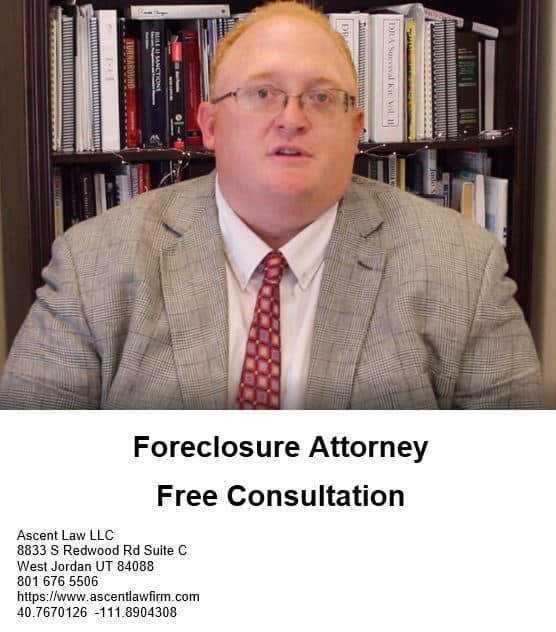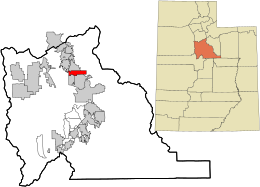

If you’re facing a foreclosure, you’ll need to decide not only if you want to fight the foreclosure, but also if it’s worth paying an attorney to help you. Sometimes, hiring a lawyer is essential. For instance, if you have a valid defense to the foreclosure and want to keep your home, you’ll likely need a lawyer’s assistance. But in some situations, you probably don’t need to hire one. Say your goal is just to stay in the home (payment free) through the foreclosure process. In this scenario, it probably makes sense to go at it alone.
If you’re facing a foreclosure, but don’t have money available to hire a lawyer to work with you throughout the process, you might want to consider:
• dealing with the foreclosure on your own without an attorney
• paying for just one consultation with an attorney
• finding an expert foreclosure attorney, or
• Getting assistance from a free legal aid society or a foreclosure prevention clinic in your area.
When You Should Hire a Foreclosure Attorney
Below are some situations where you should consider hiring or at least consulting with, an attorney:
You Have a Defense and Want to Keep Your Home
If you think you have a defense to the foreclosure, and you want to keep your home, you’ll likely need a skilled attorney to help. Some defenses that probably require the aid of an attorney include the following:
• The servicer didn’t follow proper foreclosure procedures.
• The foreclosing party can’t prove it owns your loan (that it has “standing” to foreclose).
• The servicer made a serious error with your account.
Each foreclosure defense is different and every situation has complicated nuances that can ultimately make or break the case. And, you’ll have to raise your defense in court. You’ll need to file your own lawsuit if the foreclosure is non-judicial or respond to the foreclosure lawsuit in a judicial foreclosure. Either way, the process involves making a legal argument, filing documents with the court, following rules of evidence, and more. A foreclosure lawyer can help you formulate your arguments, navigate the rules of the court, and submit the appropriate paperwork. It’s unlikely that a homeowner could mount a successful defense to foreclosure without an attorney.
You’re in the Military
Active military service members have special protections against foreclosure, as well as certain rights, under the Service members Civil Relief Act (SCRA). The SCRA is extensive and complex. If you’re a military service member, an attorney can inform you about all of your rights under the SCRA and help ensure that the servicer complies with this law.
The Servicer Is Dual Tracking
If you’ve applied for loss mitigation and the servicer is dual tracking (foreclosing while an application for a foreclosure alternative is pending), you’ll want to deal with this legal violation immediately—before a sale happens. It’s very difficult to get your home back after a foreclosure. Having an attorney on your side gives you a better chance of getting results before a sale takes place.
How Much Will a Foreclosure Lawyer Charge?
Most foreclosure attorneys structure their fee agreements by charging an hourly rate, collecting a flat fee or charging a monthly rate. The amount you’ll pay in total could range from several hundred dollars to several thousand dollars. Exactly how much you’ll have to pay varies based on a number of factors, including the attorney’s level of experience and how much other attorneys in the area charge.
Don’t Deal With the Foreclosure without a Lawyer
If you don’t want to fight the foreclosure, you can probably deal with it on your own. You should educate yourself about what steps are involved, how long a foreclosure typically takes in your state, and exactly when you’ll have to move out of your home. You can apply for a mortgage modification during foreclosure without an attorney. You probably don’t need an attorney to help you apply for a mortgage modification. A modification is a permanent change to the loan terms, such as an interest rate reduction, to make the monthly payments more affordable. To get the ball rolling, call your loan servicer and let it know you would like to apply for a modification. The servicer will tell you exactly what you need to do to submit an application. If you need help with the application, you can make an appointment to talk to a free HUD-approved housing counselor.
Why you might want to apply for a modification
If you apply for a modification, you might be able to work out an agreement that will allow you to keep the home. Even if you can’t work out a deal, applying for a modification will you buy you some time to stay in the home before the lender completes the foreclosure. Generally, under federal law (and some state laws), a foreclosure must stop while the servicer evaluates your application.
When you should consider hiring an attorney
You should seriously consider hiring a foreclosure attorney if you think you have a valid defense to the foreclosure, like the servicer didn’t follow the law or made a serious error with your account. In most cases, you’ll have to raise the defense in court, either by filing your own lawsuit (if the foreclosure is non judicial) or responding to the lender’s lawsuit (if the foreclosure is judicial), which can be complicated. This means that it is usually better to hire an attorney than to go it alone if you want to successfully save your home. You might want to schedule at least one consultation with a lawyer even if you can’t afford to hire an attorney to represent you through the entire process. A lawyer can tell you exactly how foreclosure works in your state and how much time the process will likely take.
Setting expectations
Before going into the meeting, make sure you know how much time the attorney will spend with you, what he or she will help you with—for example, the lawyer may be willing to answer questions about foreclosure, but not about filing for bankruptcy—and how much the attorney charges for the consultation.
At the meeting, you might want to ask the lawyer to provide you with details about foreclosure procedures, to review the facts of your case, and determine whether you might have a defense to the foreclosure. The lawyer can also help you decide your next steps and explain your legal rights.
What Does a Foreclosure Defense Attorney Do for You?
Foreclosure cases are rarely set in stone. Hiring an experienced foreclosure defense attorney early in the case gives you the best chance of success. The last thing you want to do is battle for your home in court without knowing all your options. Here are a few immensely helpful things a foreclosure attorney can do for you.
Provide You with Options
A foreclosure attorney knows the legal landscape better than you. Their experience and judgment will save you time, help you avoid pitfalls, and maximize your chances of saving your home. Depending on your situation, your best course of action may be to avoid foreclosure via loss mitigation, modify your loan, file for Chapter 13 bankruptcy, or have your foreclosure attorney represent you in court outright. An experienced foreclosure attorney in Lindon Utah can help you understand the pros and cons of each option.
Represent You at Settlement Conferences
If you live in a state that mandates settlement conferences, your attorney can attend them in your place and negotiate with the bank’s attorney to save your home. The conference is an opportunity for both parties to reach an alternate resolution that doesn’t involve foreclosure. Without an attorney, you’d have to contend with the bank’s attorney on your own time with limited knowledge.
Help You Get a Loan Modification
A loan modification adjusts the terms of your loan such that you can afford the payments. While modifying a loan is free, few homeowners can convince the bank to approve a modified loan without help from an attorney. The bank must review several key pieces of information about your income before making their decision. An experienced attorney can provide and present this information in the best light to help you get approved for a new loan you can afford.
Help You Pursue Loss Mitigation
Certain loans carry loss mitigation options that give you an opportunity to stay current on your payments. Some lenders may withhold this option from you, and without an attorney you would likely have no idea that you could pursue this route. An attorney will not only let you know if loss mitigation is available to you, but also help you choose between the many different ways you can approach this option.
Raise Defenses in Court
If the bank made mistakes in foreclosing your home, an attorney can identify them and fire back. For example, the lender may have breached your loan contract or violated state foreclosure laws, or the foreclosing party may not be the rightful owner of the mortgage debt. You may unknowingly be the victim of unfair lending practices or an unlawful mortgage assignment. There are dozens of strategies and tactics an experienced attorney can use to postpone foreclosure. And if the court accepts your attorney’s argument, you may receive the option of a settlement or even have your lawsuit dismissed entirely.
Help You File for Chapter 13 Bankruptcy
If all else fails, an attorney can help you file for Chapter 13 bankruptcy. If approved, you will have three to five years to get up to date on your payments and will be able to keep your home. Your home is an important not only for its financial value, but for the memories it holds. You don’t have to fight for it alone.
We are a Foreclosure Law Firms/Lawyers serving Lindon, Utah
Foreclosure Lawyer Lindon Utah Free Consultation
When you need a lawyer for Foreclosure in Lindon Utah, please call Ascent Law LLC for your free consultation (801) 676-5506. We want to help you.
8833 S. Redwood Road, Suite C
West Jordan, Utah
84088 United States
Telephone: (801) 676-5506
Recent Posts
Taking Legal Action For Non-Payment Of Invoices
Ascent Law LLC St. George Utah Office
Ascent Law LLC Ogden Utah Office
Lindon, Utah
|
Lindon, Utah
|
|
|---|---|
  The Wasatch mountain range north of Lindon.
|
|
  Location in Utah County and the state of Utah
|
|
| Coordinates: |
|
| Country | United States |
| State | Utah |
| County | Utah |
| Settled | 1850 |
| Incorporated | March 5, 1924 |
| Named for | Linden tree |
| Area | |
| • Total | 8.54 sq mi (22.11 km2) |
| • Land | 8.35 sq mi (21.63 km2) |
| • Water | 0.19 sq mi (0.48 km2) |
| Elevation
|
4,642 ft (1,415 m) |
| Population
(2010)
|
|
| • Total | 10,070 |
| • Estimate
(2019)[2]
|
11,100 |
| • Density | 1,329.34/sq mi (513.27/km2) |
| Time zone | UTC-7 (Mountain (MST)) |
| • Summer (DST) | UTC-6 (MDT) |
| ZIP code |
84042
|
| Area code | 801 |
| FIPS code | 49-45090[3] |
| GNIS feature ID | 1442630[4] |
| Website | www.lindoncity.org |
Lindon is a city in Utah County, Utah, United States. It is part of the Provo–Orem, Utah Metropolitan Statistical Area. The population was 10,070 at the 2010 census. In July 2019 it was estimated to be to 11,100 by the US Census Bureau.
[geocentric_weather id=”d16e6aa9-593a-450c-a7df-9db47d757bfc”]
[geocentric_about id=”d16e6aa9-593a-450c-a7df-9db47d757bfc”]
[geocentric_neighborhoods id=”d16e6aa9-593a-450c-a7df-9db47d757bfc”]
[geocentric_thingstodo id=”d16e6aa9-593a-450c-a7df-9db47d757bfc”]
[geocentric_busstops id=”d16e6aa9-593a-450c-a7df-9db47d757bfc”]
[geocentric_mapembed id=”d16e6aa9-593a-450c-a7df-9db47d757bfc”]
[geocentric_drivingdirections id=”d16e6aa9-593a-450c-a7df-9db47d757bfc”]
[geocentric_reviews id=”d16e6aa9-593a-450c-a7df-9db47d757bfc”]


